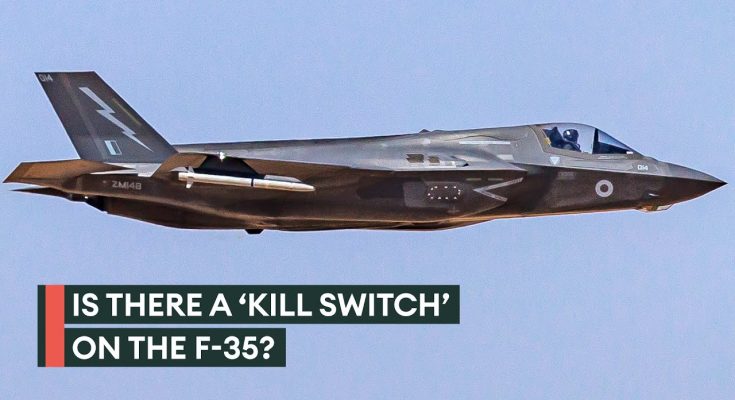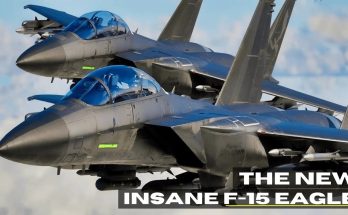The concept of a “kill switch” for foreign military assets, particularly in the case of advanced weapons systems like the UK’s F-35 Lightning jets, is a sensitive and often debated topic. While there is no confirmed, publicly disclosed “kill switch” that allows the U.S. to remotely disable or control the UK’s F-35 aircraft, there are certain mechanisms that could potentially limit or control the operation of these jets, particularly when it comes to sensitive or classified technologies.
F-35 Program and Its Partnership
The F-35 Lightning II is a fifth-generation stealth fighter developed by Lockheed Martin, primarily for the U.S. military but also for international partners and customers. The United Kingdom is one of the key international partners in the F-35 program, with the Royal Air Force (RAF) and the Royal Navy operating the aircraft.
The U.S. and the UK, along with other partner nations, share the cost of the F-35 program through a unique collaboration. As a part of this partnership, the U.S. holds significant influence over the aircraft’s development, maintenance, and access to certain systems. However, the UK’s F-35s are operated under British control, and the UK retains authority over their use and deployment. This arrangement is underpinned by mutual trust, shared interests, and the understanding that both nations benefit from the operational capabilities of the F-35.
The “Kill Switch” Theory: Is There a Reality?
The concept of a “kill switch” often stems from concerns over the control that one nation may have over another’s military assets, particularly when those assets rely on technologies or components produced by a third-party country. In the case of the F-35, the aircraft is heavily reliant on U.S.-controlled systems, software, and hardware.
The U.S. could theoretically limit or prevent the operation of an F-35 in certain situations. For instance, one of the key elements of this concern lies in the Autonomic Logistics Information System (ALIS) and its successor, ODIN (Operational Data Integrated Network), both of which are software systems used to maintain and manage the F-35 fleet. These systems are controlled by the U.S. and are responsible for managing everything from maintenance data to software updates. Without access to these systems, an F-35 may be grounded or unable to operate at full capacity.
Additionally, certain sensitive technologies in the F-35, including stealth coatings and sensor packages, may be under strict U.S. export control laws, which could theoretically allow the U.S. to restrict the UK’s ability to operate the aircraft fully if desired.
However, this would not be as simple as a remote “kill switch” in the traditional sense. Any move to limit or restrict the use of F-35s by the UK would likely be part of a broader political or military conflict, rather than a simple technological feature designed to control the aircraft in normal circumstances.
The U.S. and the UK’s Relationship
It is crucial to note that the U.S. and the UK have a longstanding and strong defense relationship. The two countries are closely aligned in terms of military strategy, intelligence sharing, and operational coordination, especially in joint operations involving advanced technologies like the F-35.
It is highly unlikely that the U.S. would unilaterally disable or limit the UK’s F-35 fleet, given the strategic and diplomatic importance of the U.S.-UK defense partnership. However, there are mechanisms in place to ensure that critical systems and technologies are not misused or fall into the wrong hands, including safeguards built into the F-35 program.
Conclusion
In short, while there may be mechanisms through which the U.S. could limit or control certain aspects of the F-35’s operation — particularly through its involvement in the aircraft’s software systems and export control regulations — the idea of a direct, remote “kill switch” that would incapacitate the UK’s F-35 fleet is speculative. The U.S.-UK defense relationship is built on trust and mutual strategic interests, and any actions taken to limit the operation of the F-35 would likely be in response to significant geopolitical or security concerns, not as a matter of routine control over the aircraft’s functioning.



